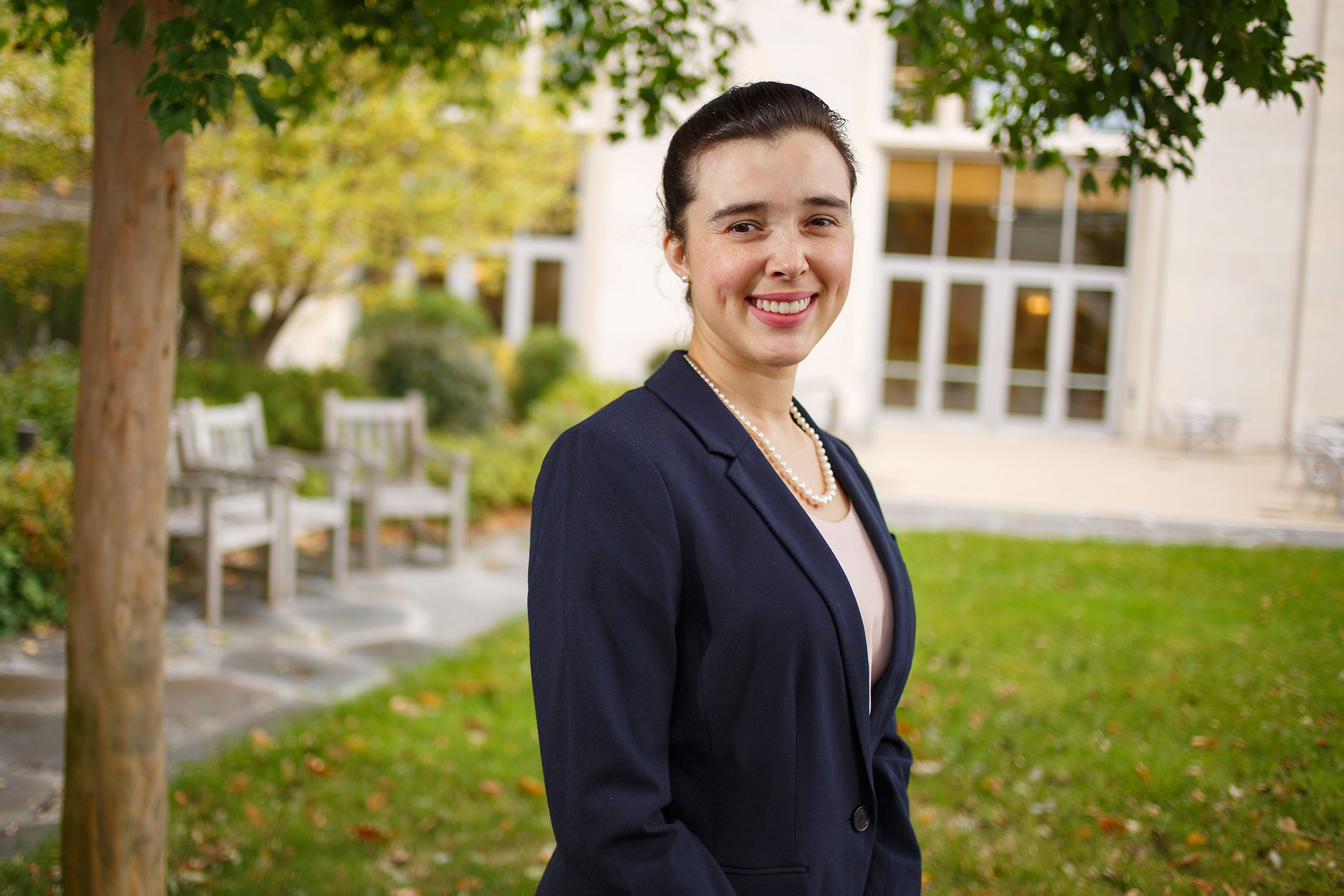Ever since she was little girl growing up in Washington, D.C., Isabel Marin ’20 has wanted to be a lawyer. But between graduating from Yale in 2012 and entering law school this year, Marin had an important goal: to serve as an officer in the U.S. Marine Corps.
“I’d really recommend it to anyone,” says Marin, who deployed to Afghanistan and Kuwait during her four years of service. “I had a very positive experience, with great leaders, great battalion commanders and executive and operations officers that put a lot of trust in their lieutenants and helped us grow as leaders. It built confidence and gave me significant leadership experience.”
Even though she was one of the few—and often the only—women in her platoon, where she was platoon commander, she says she never encountered problems either with the men she led or those to whom she answered. “It felt really important to know that male battalion commanders put their trust in me. It built a lot of confidence in me, that my leadership as a woman was supported and trusted,” she says. “I’ll always carry that with me.”
Marin, whose mother is from Cuba and whose father is from Costa Rica, never intended the Marines as her career. But at Yale, where she graduated cum laude with a degree in humanities, she found herself reading about the ancient Greeks, especially the Athenians, whose leaders put high value on military experience. “It really inspired me. I wanted to be more like those role models,” says Marin, but at the time, Yale did not have an ROTC program for students.
As a student in Yale’s Brady-Johnson Program in Grand Strategy, Marin was required to do a summer project before her senior year and decided to enroll in the 10-week U.S. Marine Corps Officer Candidates School in Quantico, Virginia. “I was really interested in seeing what kind of women I would encounter in the Marines Corps and what their leadership style would be,” says Marin. The program included intense physical and weapons training, being yelled at by drill instructors, and sleep deprivation. Given the extreme discipline, “it’s strange to say you enjoyed some of it, but I did,” she says. She was particularly drawn to the Corps’ “servant leadership” style, where “the leader serves the Marines. That concept of servant leadership really resonated with me.” Deeply interested in geopolitics, Marin also valued the fact that serving would give her an on-the-ground perspective, “to see past the news to understand what’s really happening.”
At the end of OCS, Marin decided to make a four-year commitment to the Marines. A delay in starting active duty allowed her to witness the historic re-launch of ROTC at Yale in 2012, and assist Professor Paul Kennedy in developing the required military history course for ROTC students.
Marin began her service in April 2013, and in 2014, she deployed to Afghanistan for four months where she supported the historic closing of Camp Leatherneck in the Helmand Province. As a logistics officer, she planned and coordinated the airlift of the logistics combat element’s equipment and vehicles, $69 million in value, out of the base. Next, she was promoted to platoon commander and then led 25 Marines on a six-month deployment to Kuwait. “It was great because it was so clear we were helping, in our small way, with the battle against ISIS,” she says. She also prepared members of her platoon for deployment to Iraq, although she did not join them there, to her disappointment.
While platoon commander, she was awarded the Navy and Marine Corps Commendation Medal. Marin also served as a victim advocate for sexual assault victims. She doesn’t believe there is anything inherent in military culture that fosters sexual assaults but notes that the environment is similar to colleges, where sexual assaults also are a problem, in that most new Marines are ages 18 to 22, away from home for the first time, and have access to alcohol. Still, she did find “really sad” that none of the cases in which she was a victim advocate went to trial, and she found the judicial process “somewhat mysterious to us from an advocate perspective.”
In her final assignment, Marin was promoted to Captain and chosen as Company Commander. There, she led 130 Marines based out of Camp Pendleton for eight months, preparing them for success in a six-week, war games exercise in the Mojave Desert. She also exercised her legal authority as a Company Commander in seven “non-judicial punishments”—the most common and basic form of military adjudication—on crimes including underage drinking and domestic violence, which confirmed her decision to become a lawyer.
Two months into her 1L studies, Marin has decided she’d like to become a prosecutor, probably at the federal level, and then eventually become a law professor. Marin, who speaks fluent Spanish and French, and studied Arabic including during a summer in Syria, lives with her husband Tom Stipanov HBS ’18, a second-year student at Harvard Business School, and their four-month-old son, Alexander. Marin and Stipanov, also a former Marine, met while both were stationed at Camp Pendleton, and their courtship endured three deployments between them.
Marin has found the HLS community very supportive of her experience in the Marines. “Generally, I think many people at this point in time in the U.S. are still looking upon the military as an honorable thing to have done,” says Marin. “I’m so happy I got to do it.”
